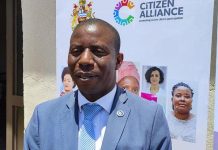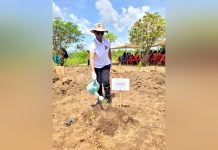Africa-Press – Malawi. The International Labour Organisation (ILO) has urged government to domesticate financing for social protection programmes in the wake of donor fatigue resulting from unfavorable global economic trends.
Social Protection Technical Officer for the ILO Patience Matandiko said recently that, with the continued shrinking of the fiscal space, chances are that donors might reduce their funding or stop supporting the programmes, hence, challenged government to consider sustainability of the programmes.
Some of the social protection programmes in Malawi include the Social Cash Transfer, Village Savings and Loans, School Feeding Programme, Food for Work and the now defunct Public Works Programme.
A recent Unicef report says that, in the 2020-21 financial year, the World Bank allocated K29.1 billion to the Social Cash Transfer Project through a grant under the Malawi Social Support for Resilient Livelihoods (MSSRL) Project.
The amount includes K14.65 billion for regular cash transfers, K11.5 billion for the Covid Urban Cash Intervention and the rest went to strengthening harmonised delivery systems, Unified Beneficiary Registry (UBR) and other operational activities. The Government of Malawi has in the 2022-23 National Budget allocated K3 billion for social protection programmes.
“We all know that over 90 percent of the current funding to the Social Protection Programs is coming from the donors, and there are issues of sustainability because we all know that, with the ongoing global crisis, there are certain times that even donors might have restricted funding and in the end it’s just normal and rational that we may see a reduced funding into the programmes; so, it is important for us to be having this kind of discussion,” Matandiko said.
She said while ILO understands the economic challenges that Malawi is facing that would prevent it from fully supporting the social protection programmes, there is a need for government to start looking at some of the innovative ways that can be incorporated to contribute to the programmes in question.
“Global economic crises are something that governments or member states have no control over, hence the discussion on how we can mobilise domestic resources. We need to be thinking of how do we move or graduate to a level where we are able to support our programmes. And there are different modalities and one of them is improving and extending social security programmes to the informal sector,” Matandiko said.
She then called for transparency and accountability in the implementation of the programmes. Chief Economist in the Division of Poverty Reduction and Social Protection in the Ministry of Finance and Economic Affairs Yona Phiri said government is cognizant of all the ongoing global economic trends and that in the current budget government has allocated about K3 billion for social protection programs.
“As government, we are employing what we are calling a Unified Beneficiary Register in order to deal with some of the irregularities that have been there, we have made great strides and government is committed to actively take part in financing of the programmes,” he said.
According to Phiri, the Social Cash Transfer Programme has so far covered 220,447 households translating to 925,959 individuals in 28 districts, while the school feeding programme has reached two million leaners.
For More News And Analysis About Malawi Follow Africa-Press






